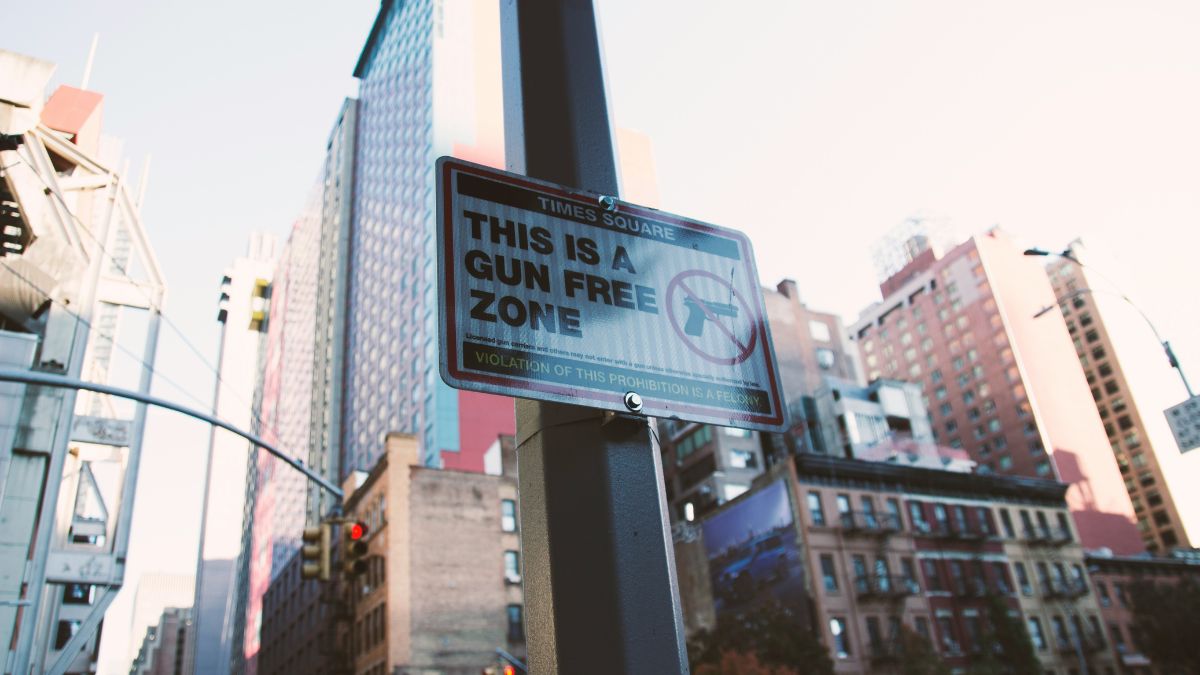

Gun Violence and the Human Heart
No number of laws will mitigate a lack of virtuous living.
08/1/24
John Stonestreet and Jared Hayden

The hope that the attempted assassination of former President Trump would become a rallying moment for national unity vanished quickly. What remains is a deep divide over gun ownership and what to do about the extensive gun violence in America. For many progressives, the solution is to get rid of guns by any means necessary. Others call for more rigorous legal restrictions, such as more rigorous background checks. Most political conservatives want the least number of legal restrictions possible, given that the long history and original purpose of second amendment rights had more to do with fears of an overreaching state than hunting and recreation.
Because the Constitutional arguments matter, so do the warnings of so many of our nation’s Founding Fathers. The future of the republic, Benjamin Franklin said, depended on whether citizens could “keep it.” And John Adams added, “Our Constitution was made only for a moral and religious people. It is wholly inadequate to the government of any other.”
Chuck Colson often said that a choice all nations face is between the conscience and the constable. If a people will not be governed by conscience, they will have to be governed by the constable. The loss of conscience, which is always a failure of moral formation, will inevitably lead to the loss of freedom.
As we continue to wait to learn the motivations of President Trump’s would-be assassin, there’s much to keep in mind when it comes to gun violence in America. Although mass shootings and attempted mass shootings garner most of the media attention, the vast majority of homicides by firearms occur in inner city communities and are often an expression of gang violence. In 2021, almost half of all firearm homicides were carried out in the densest, central metropolitan areas, a rate twice as high as other areas.
And most instances of gun violence are not homicides. Most are suicides and attempted suicides. The annual suicide rates in America over the past decade have been among the highest in our nation’s history. Of the almost 50,000 firearm deaths in 2021, over half were suicides.
These facts alone, though there are others, are a clear indication that gun violence is a fruit, not a root, of a deeper problem that plagues our nation. Gun violence, whether directed at oneself or at others, is the result of a deep brokenness that is characterized by broken families, the loss of meaning, and an absence of moral formation of young men, in particular.
For decades, American society has been shedding the meaning-making stories and the meaning-making institutions that transmit those stories to the next generation. Among America’s most notable distinctives was the religious framing of these stories, which from its founding, placed life as part of something bigger. Over time, western culture has been lured away, both by secular influences and by pop eastern mysticism. As a result, the transcendent, “permanent” things like truth, beauty, and goodness are considered subjective at best and imaginary at worst. Detached, we tend to think of ourselves as mere matter in motion, adrift on a “pale blue dot” in the heavens.
Add to that landscape the devices of distraction, from smartphones and social media to opioids, plus the loss of meaningful work and moral formation, and it’s no wonder gun violence, both suicidal and homicidal, claims so many lives.
The only way to prevent gun violence and the impending loss of freedom is through a change in the human heart. This goes beyond politics or policy. It cannot be done absent of a moral change, which requires more of civil society than the state. If the Church and the family fail to form minds and hearts, the moral vacuum will be filled by other entities such as government and big tech. If gun violence is going to end, we will need renewed virtue far more than new laws. In fact, there will not be enough laws to mitigate the damage done by a people without virtue, meaning, and hope.
To learn more about offering hope in this fragile moment, consider taking the “Hope Always” course featuring Dr. Matthew Sleeth. It is available online and can be accessed at any time. Go to educators.colsoncenter.org for more information.
This Breakpoint was co-authored by Jared Hayden. If you’re a fan of Breakpoint, leave a review on your favorite podcast app. For more resources to live like a Christian in this cultural moment, go to breakpoint.org.
Have a Follow-up Question?
Up
Next

Related Content

© Copyright 2020, All Rights Reserved.













